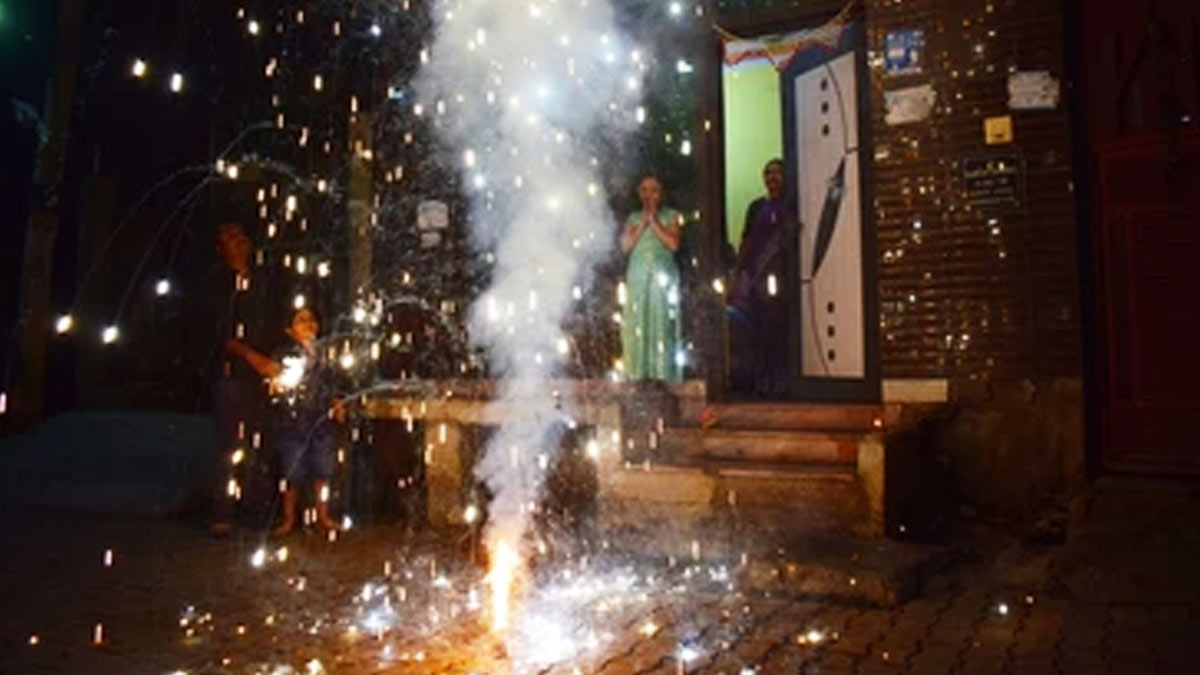
Diwali, the festival of lights, is celebrated with great enthusiasm across the country, accompanied by the lighting of firecrackers. However, this joyous tradition of lighting firecrackers can lead to air pollution and, consequently, breathing difficulties for some individuals. We spoke to our experts who listed preventive measures and first aid tips for breathing difficulties this Diwali.
Table of Content:-
Air Pollutants During Diwali

Diwali is known for the extravagant use of fireworks, which release a variety of air pollutants, including particulate matter, Sulphur Dioxide (SO2), Nitrogen Dioxide (NO2), and Carbon Monoxide (CO), said Dr Hari Kishan, Senior General Physician, Kamineni Hospitals, LB Nagar, Hyderabad.
He added, “These pollutants can have detrimental effects on the respiratory system, particularly for individuals with pre-existing respiratory conditions. The smoke and particulate matter generated during Diwali can irritate the airways, leading to breathing difficulties, coughing, and wheezing. Also, fine particulate matter can enter deep into the lungs and potentially cause long-term health issues.”
“It's important to note that people with pre-existing respiratory conditions, such as asthma or Chronic Obstructive Pulmonary Disease (COPD), are more vulnerable to the effects of Diwali-related pollution. They should take extra precautions and have their prescribed medications readily available”, highlighted Dr Sanjay Singh, General Physician, Cygnus Laxmi Hospital, Varanasi.
Also Read: Burning Throat Due To Air Pollution? Follow These Remedies To Soothe Your Irritation
Tips To Prevent Breathing Difficulties During Diwali
Follow these proactive measures to prevent breathing difficulties this Diwali:

“If you or someone you know has respiratory issues, limit outdoor exposure during the peak hours of fireworks displays and stay indoors, where using air purifiers with HEPA filters (a type of air filter that is designed to remove airborne particles that are larger in size) can significantly reduce exposure to harmful pollutants”, advised Dr Kishan.
He added, “Keep a close watch on local air quality using available apps and websites, and if the air quality is poor, it's advisable to avoid outdoor activities, keep windows and doors closed, and, for added protection, consider using N95 or N99 masks when venturing outside during Diwali. These actions collectively contribute to creating a safe indoor environment, ensuring a comfortable and health-conscious celebration.”
First Aid For Breathing Difficulties In Diwali
In the event of severe breathing difficulties during Diwali, it is crucial to take immediate action.

Move To Clean Air
“The first and most crucial step is to move the affected person to an area with clean, fresh air. This might involve going indoors or to a location away from the source of pollution, such as fireworks”, said Dr Singh.
“Keep the affected individual away from open windows or balconies that might introduce polluted air”, added Dr Kishan.
Use a Mask
“If available, provide the person with a mask or cloth to cover their nose and mouth. This can help filter out some of the pollutants and make breathing easier”, advised Dr Singh.
Use Inhalers Or Medications
Dr Kishan added, “For those with pre-existing respiratory conditions like asthma, assist them in using their prescribed inhalers or medications as needed, as quick action can prevent the situation from worsening.”
Also Read: Pollution Can Cause Dry Eyes: Here's How to Protect Your Eyes
Stay Calm And Engage In Deep Breathing
“Anxiety can worsen breathing difficulties. Reassure the person and encourage them to take slow, deep breaths to help calm their breathing”, said Singh.
Dr Kishan said, “Engaging in deep breathing helps relax and open up the airways, which is particularly beneficial for asthmatic individuals.”

Hydrate
Make sure to keep yourself hydrated as drinking water can help in thinning mucus and easing breathing.
Assist Breathing
“If the person is having severe breathing difficulties, encourage them to sit down, lean forward slightly, and support themselves with their hands on their knees. This position can help improve airflow”, said Dr Singh.
When To Visit A Doctor?
If the breathing difficulties worsen or do not improve, seeking immediate medical attention is essential; in such cases, call for an ambulance or transport the person to the nearest healthcare facility for prompt and appropriate care. These steps are critical in addressing breathing difficulties effectively during the festival.
Bottomline
Dr Kishan concluded, “Following Diwali, it's crucial to monitor for any persistent breathing difficulties. If symptoms endure, seek professional medical evaluation and treatment. Ensure indoor spaces are thoroughly cleaned and ventilated to remove residual pollutants for a healthier recovery environment. Encourage those with breathing difficulties to practice respiratory exercises to enhance lung strength and capacity, promoting overall respiratory well-being.”
Also watch this video
Read Next
Are You Concerned About Your Hand Hygiene? Be Mindful Of These Chemicals While Buying A Hand wash
How we keep this article up to date:
We work with experts and keep a close eye on the latest in health and wellness. Whenever there is a new research or helpful information, we update our articles with accurate and useful advice.
Current Version